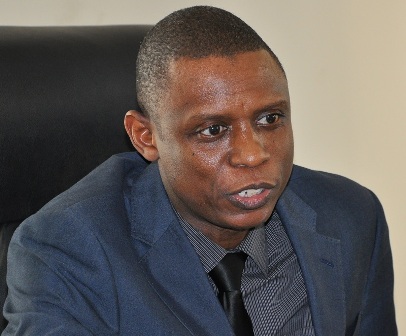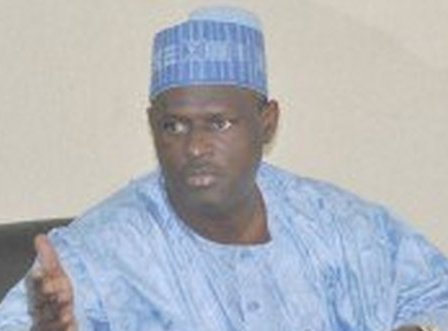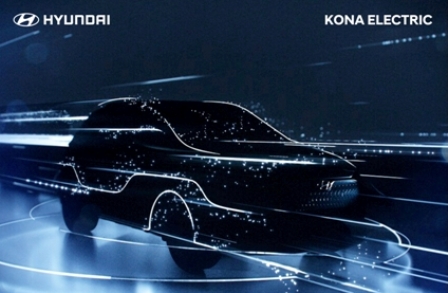Climate change is for real. The changes in global temperature and weather patterns seen today are caused by human activity. They are happening much faster than the natural climate variations of the past. World over, industries have started recognizing this and are making the switch towards sustainable means of doing business and adopting technology with less environmental impact.
Responding to the problem, therefore, auto users around the world are, speedily, replacing internal combustion engine-powered vehicles with Electric Vehicles (EVs), which generate no pollutant. Like dry season wild fire, the revolution is moving with speed.
And from all indications, before the year 2020 runs out, Nigeria would officially join the rest of the world in embracing electric cars, courtesy of Stallion Motors, Nigeria’s leading auto assembler and franchisee of 9 Global brands including Hyundai.
Recently, the company’s Group CEO, Mr. Anant Badjatya hinted of his company’s plan to officially launch into the Nigerian market Hyundai – Kona, an Electric car regarded by European motoring journalists as world’s number one.
“Well-meaning and concerned people globally are urgently making moves to save our dear planet,” explained Mr. Badjatya.“After operating successfully in Nigeria for over five decades, the least our company could give back to the country and by extension, the world is to be a leading pilot in steering the nation to the direction of clean energy use and reduction of emission.
“Not being dissuaded by the nation’s infrastructural challenges, one of our plans for this year is to introduce into the country Electric Vehicle (EV) and, in no distant future, embark on attitude change campaign for a clean environment in conjugation with Hyundai.
“Versatile and powerful, the Hyundai KONA Electric will be the first All-Electric SUV in Nigeria. Its power packed performance will provide a thrilling driving experience with high acceleration over long distances. Driving range for Kona Electric is 482 km with an acceleration of 0-100kms in 9.7 secs.
The ease of charging is unmatched; one can even plug it in at home or at work and charge it for 9.35 hrs for a full battery capacity. Hyundai Kona comes with a 5 years of battery warranty and 5 years of vehicle warranty. KONA Electric will change the way people think about going electric. It would make history as first EV to be sold in Nigeria with local manufacturing. “
Is Nigeria Ready?
While putting finishing touches to the National Automotive Industry Development Plan (NAIDP) for passage into law, the federal government of Nigeria, February 2019, laid bare interest in EV technology by assigning University of Nigeria, Nsuka (UNN), University of Lagos, Usman Dan Fodio University and Metrological Institute for design and production of a made-in-Nigeria electric car.
Less than a year after (July 2019), UNN announced completion of an EV put together with 80 per cent local content.

Representing the federal government at the unveiling ceremony of the car, the Director General of National Automotive Design and Development Council, Mr. Jelani Aliyu, did not only commend the institution for the achievement, but also expressed President Muhammadu Buhari administration’s resolve to support any company willing to invest in local manufacturing of electric vehicles.
Also in his keynote address at an annual event of the Nigeria Auto Journalists Association held recently in Lagos, Aliyu described the EV technology as good news for Nigeria.
“To tap from the trend,” Aliyu explained, “We have met and discussed with both electric vehicle and charging station manufacturers in China and Germany towards the pilot program.”
It would also be recalled that Nigerian government, not long ago, signed an MOU with Volkswagen, Europe’s largest auto manufacturer and leading investor in EVs, to produce vehicles in Nigeria.
Are Nigerians Ready?
On the other hand, our investigation has also revealed that most Nigerian motoring public are not willing to be left behind in the EV revolution. Indeed, unofficially, Electric vehicles have started sneaking into the country, another confirmation of readiness of Nigerians for the clean running car.
For instance, mid-February 2020, our correspondent found one plugged onto a charging point at the premises of OMNIC Limited, polyethylene converting company based in Lagos. Our enquiry revealed that the car belongs to the son of the company’s managing Director, Mr. Harish Thavran.
Moreover, in a recent poll conducted across Nigeria’s economic nerve centre, Lagos State, over 70% of motorists randomly interviewed expressed desire to own electric vehicles.
One of the most brilliant reactions came from an IT Engineer and a civil servant with Lagos state government, Mr Taiwo Olatubosun. Using how mobile phones became popular in Nigeria as an example, Olatunbosun does not believe electricity problem could hinder EVs from selling in Nigeria.
“How could electricity be a hindrance?” he queried, adding, “After all, we charge our mobile phones daily. If you talk of the current cost of buying an electric car, I can understand. But you would recall that when about two decades ago, the mobile phone arrived in form of cellular, it cost a fortune to own one. Our nation keyed into the technology. And today, you can get a sim card for free.
“Mind you, to make up for inadequate power supply, thousands of Nigerians have already invested in solar energy. What any company marketing the car could do is invest in solar charging stations. Where I live, we have full electricity, two-day on, one-day off. From what I have read about EVs, there are now in the market those that charge fully in less than 60 minutes and can cover a distance of about 500 kilometers on a full charge.
“Even adding to traffic hold ups in the cities, the car will take you to and from work for two days, if, for instance, you live in Ikeja and work on Lagos Island. Affordability is, to me, the question, not whether or not Nigeria is ready. It is good for the environment. It is cheaper to run and maintain. Once we Nigerians are ready, Nigeria is ready.”
Another respondent, Julius Olomola, Managing Director of Lomket Group, owner of Lomket Computer Institute, can’t wait to own an electric vehicle.
“Who says we are not ready?” he asked, adding, “Make it affordable and see if Nigerians would not do away with petrol-powered vehicles. Since we started running our house on solar power, for us, the difference is clear? Just the way I enjoy solar energy for domestic use, it will be great to be able to simply charge my car at home like mobile phone and drive around at no fuel cost. Truth is benefit of EVs to the environment you can’t quantify.”
FRSC Corps Marshal’s Reactions
Also contacted was the Corps Marshal of the Federal Road safety Corps (FRSC), Dr. Boboye Oyeyemi.
In a telephone interview, Oyeyemi, who expressed elation over the hint that a Nigerian auto company plans to launch EVs into the country, opined that the nation cannot afford to be left behind in the campaign for reduction of carbon emission.

“As I am talking to you,” he said, “I am just from the Airport on my way from Stockholm. Over there, EVs have become popular. Many homes have electric vehicles, which they plug into electricity over night for use the following day.
“Introducing electric vehicles into the Nigerian would be a good development. It is true; we need relevant infrastructure to sustain it. But, so long as they get clearance from the Standard Organization of Nigeria (SON), any auto company willing to make EVs available to Nigerian motoring public and willing to support same with charging points across the country, should be encouraged.”
To Engr. Aminu Jalal, former Director General of National Automotive Design and Development Council (NADDC), official launch of EVs in Nigeria, shall be a great achievement for the country. But, in his opinion, it might not be feasible until at least year 2025, when he believes, prices of EVs would have come down.
Excerpts from the Telephone Interview with Engr. Jalal
Q: Do you believe Nigerian is ready for Electric vehicles?
Jalal: Yes and No
Q: How do you mean?
Jalal: No doubt, EVs are the future, maybe in the next five years. At the moment, for Nigerians with strong taste for Tokunbo (Imported used vehicles), due to high cost of brand new vehicles, which they cannot afford, Electric Vehicles may be further out of their reach. For instance, the difference between Volkswagen Golf and E-Golf Electric is $5000. That is not to say things are not getting better; prices of Electric vehicles are actually coming down. Indeed, auto industry watchers have predicted that, in five years time, prices of EVs and non-EVs shall be at par and afterwards, EVs should become cheaper.

Secondly, whenever an EV is introduced into any country, its popularity is bound to soar for obvious reasons: It is easier to maintain, as it comes with far less moving parts.
But in case of Nigeria, our major challenge is power supply. Right now, where I live in Abuja, public power supply is off. I am using solar inverter. But think of it this way, what is available in most Nigerian homes are power generator sets. Can you imagine charging Electric vehicle with generator? That will defeat the primary purpose of introducing the technology, which is to curtail environmental pollution.
But if, as you hinted, a Nigerian auto company can afford to introduce EVs into the country and also invest in solar charging stations for its customers, why not? Sales would be low at the moment, but, for the country, such development would be like small but permanent positive steps.
It would even be more feasible for fleet and commercial vehicle operating companies. They could acquire EVs and set up charging points at their parks, charge their buses overnight or after each trip.
For the likes of Shell, Total and other oil companies operating in Nigeria, it would be timely for them to, like gas filling stations, set up EV charging points across the country so that future owners of EVs could plug in their vehicles and pay with credit cards.
While every respondent recognises the challenge of inadequate power supply in the country, general consensus is that there is no reason for Electric vehicle sales not to thrive in Nigeria and that, for the sake of the environment, time to take off is now.
Running Costs
Also, as pointed out by respondents, apart from initial cost of purchase, EVs attract minimal running cost. Currently, Nigerian electricity consumers resident in accommodation categorised under R1 are charged only N4 per kilowatt.
That implies, when Hyundai Kona goes on sale in Nigeria, its owner would incur only N316 (N4x79kWat) to get a full charge, if he or she plugs the car onto public power supply.
Last Words
When Stallion Group eventually fulfils its plan in the next two months, Hyundai Kona, which around the world, is already being rated above its counterparts, in terms of performance, would make history as first EV to officially go on sale in Nigeria with local manufacturing.
And without doubt, if the world trend is talk and love for fast, powerful and easier-to-maintain automobiles that are fit for a green planet, Nigerians are ready and itching to join. And courtesy of Stallion Group, year 2020 could be the beginning.





